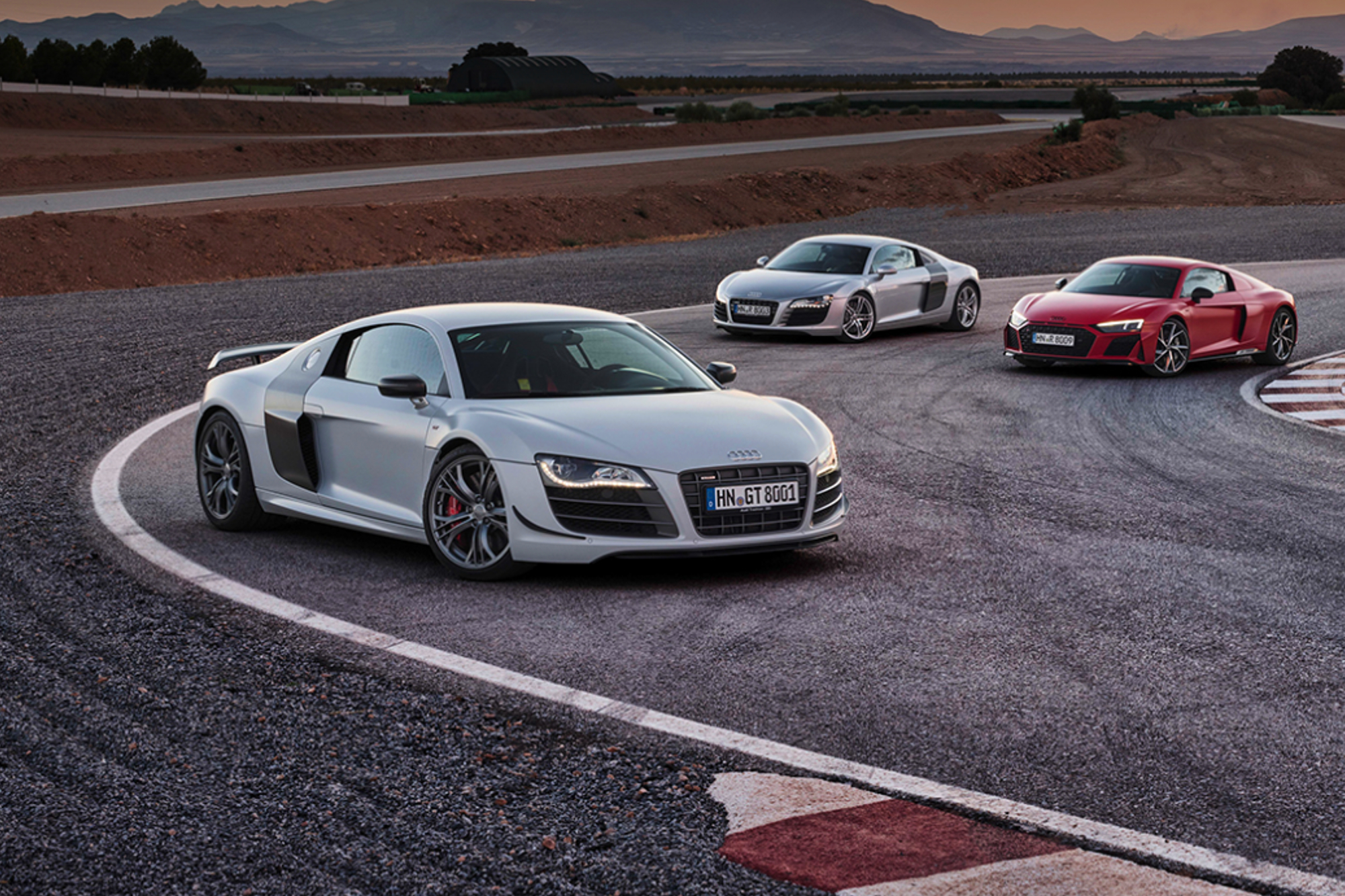
Audi manufactured the last Audi R8 in March 2024. With the brand’s V-10-powered supercar now relegated to automotive history books, car collections, and future high-end car auctions, anticipation is building for the next R8.
Audi has not made a definitive statement either about bringing the R8 back, but there are a few things we can all count on. Regardless of what it’s called, the next Audi supercar will not have a petroleum-fueled V10 engine. With Audi walking away from gas cars, Audi’s highest-performance car will be electric.
Audi Sport’s product marketing head, Linda Kurz, made that point clear when she told Roadshow that the division’s job is to “transform the R segment, and the R segment is going to be fully electric.” Audi Sport is the group that developed the 2024 Audi e-tron GT.
Why the Audi R8 electric matters
The R8 served as Audi’s halo car since 2007. However, many other automakers kick and fuss about the automotive transition to electrification; it’s a given. Audi, however, hasn’t been kicking back, kibbitzing, or vacillating with power unit choices ranging from gas, hydrogen, hybrids, and EVs. On the contrary, Audi has been all-in for battery-electric vehicles. Early in 2024, Audi reported record EV sales of its e-tron models.
So, if Audi wants to maintain its reputation as a potent supercar builder, and we know they do, an all-electric R is on the way.
Watch F1 racing in 2026 when Audi jumps in

The deal is already done. Audi will take over the Kick Sauber F1 team in 2026. The new team will be an Audi factory works team, just in time for the new-generation F1 engines.
The next-generation Formula 1 racing engines and race car specifications are due in 2026. The 2024 F1 racing schedule will be the last development year for the current F1 racing engines. During the 2025 season, Formula 1 teams will continue to race the current generation cars, tweaked as much as the FIA F1 racing rules allow, but as of January 1, 2025, the teams are allowed by FIA rules to begin working on the next-gen race car. The new F1
F1 racing, in addition to being an exciting and increasingly popular motorsport, is also a lab and testing ground for elite performance cars. The next Audi R car won’t come directly from the race track, but you can be sure the Audi Sport engineers will watch for technologies they can implement in the group’s next halo car.
Audi is already working on high-performance e-cars

Audi’s entry into F1 competition will pit its collective skill and resources against other performance brands such as Mercedes, Ferrari, Aston-Martin, and McClaren. Rather than wait for the 2026 F1 season, Audi has already announced a next-generation electric car architecture called PPE (Premium Platform Electric), jointly developed with Porsche. The PPE enables electric powertrains that are smaller, lighter, and more efficient. It also has advanced battery thermal management and new drive unit cooling technologies.
So, no, we don’t know what the next Audi R8 will be called, when it’s coming, or what it will cost, but it will be electric and very, very fast.



